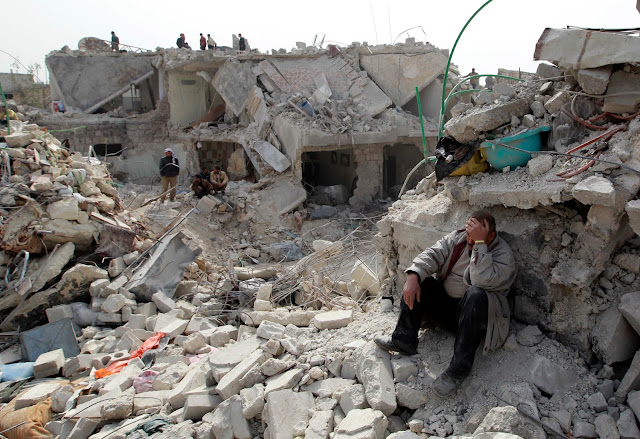Helping kids process news reports of violence
“In today's media-saturated culture, families are surrounded by accounts of shootings, bombings and other mass killings. Our kids won't fully understand these stories, but they'll be frightened just the same. As parents, we need to help them have the necessary facts to process these tragic events and a larger understanding to ease their fears.” (LINK: Focus on the Family)
I am not one that believes in keeping children hidden from world events. I think they do need to know (and understand) what is happening around them (in an age appropriate way) so once older, it doesn’t all comes as a shock and they are unable to cope with what is happening around them. Children pick up bits and pieces from the news (TV, radio and newspaper), other sources on the internet and via listening into adult conversation, so adults do need to help their children make sense of what is happening rather than them trying to find it out on their own.
We cannot shield our children from these events and nor should we, otherwise they will grow up to be adults who cannot cope and have little resiliences which unfortunately can lead to increased stress and anxiety. It is horrible that we live in such a world, but we do, so we need to equip ourselves and our children with tools to cope.
One of the reasons why we started to sponsor a child in a third world country was to grow an understanding that not everyone was as fortunate as us and we all needed to do our bit to help. As my children grew older they learnt about the wars (teaching history has always been important to me), about Hilter and his treatment of the Jews and when the Twin Towers fell, talked about terrorism. I share my interest in politics with my children and now that they are adults they are much more aware of current events both in their own country and in other nations.
The linked article provides some ideas when approaching this topic of violence which I think are very useful (read the article for more information):
* Tell the truth — Answer their questions with the truth — sad as it may be — providing your children with the basic facts about what happened. A child's world is generally pretty small, and kids may think that the horrible news events they've heard about are just across town or right next door. They might ask if it's safe to go to a mall, if ISIS is in your city, or as in the case with my daughter, if the aircraft buzzing overhead is going to attack. Depending on the tragedy, kids may also believe a number of inaccuracies that are fueled by rumours at school or from conversations with friends. So correct whatever exaggerations or inaccuracies they may have heard. One of the first things I talk about with my kids is simple geographic distance. We look at a map or globe and talk about where the tragedy occurred and how far away it is from our home.
Tell the truth, but don't dwell on information and imagery that will deepen fears. And when children enter the teen years, you can look deeper into these issues, wrestling with the meaning and faith implications behind the events.
* Adjust to their personality — When considering how much to share with your children, maturity level and temperament are more important than age.
* Show them the bigger story — Remind your children of how seldom these tragedies occur. Its so important to put things in perspective — it is good to remind children that many planes land without incident, or most countries are not at war and lots and lots of people safely attended movies and concerts and carnivals without incident. These events are rare but they do happen.
Point your kids toward all the good that is happening because there is a lot of good but it can be blotted out with the bad. Look for the men and women who are risking their lives to save others. Look for those who drive ambulances or direct traffic toward safety. Those who bring bandages and blankets, those who donate blood, those who hand out sandwiches and water bottles. Look for those who are involved in the lives of victims, giving them comfort and helping them heal.
And of course — reminded them about Jesus and whilst all these things are scary, we always need to have our faces heavenward and focused on Him in all things. We need to put our trust in Him, and whilst He doesn't remove us from danger — He does take care of us.
There are a number of children's stories that are set during the war (Anne Frank is one such book) that are worth introducing children to, so they can expand their knowledge of what is happening around them.

Our kids know a miniscule fraction of current events. I have found that knowing "everything" going on has created anxiety in my own life, so while the kids might pick up on some things that happen, they don't know all. This is probably helped by the fact we don't have the TV or newspapers, so it isn't readily available.
ReplyDeleteWhile some knowledge of current events can be useful, I don't think even adults need to be constantly knowing it all either. Filling our minds with the evil and hate in the world leaves little room for the Lord. On the other hand, having some knowledge enables us to pray "intelligently" for the Body of Christ. Getting a balance can be difficult...
Yours are still young so only know a bit makes sense for their age. It's all able balance and making it age appropriate too.
Delete